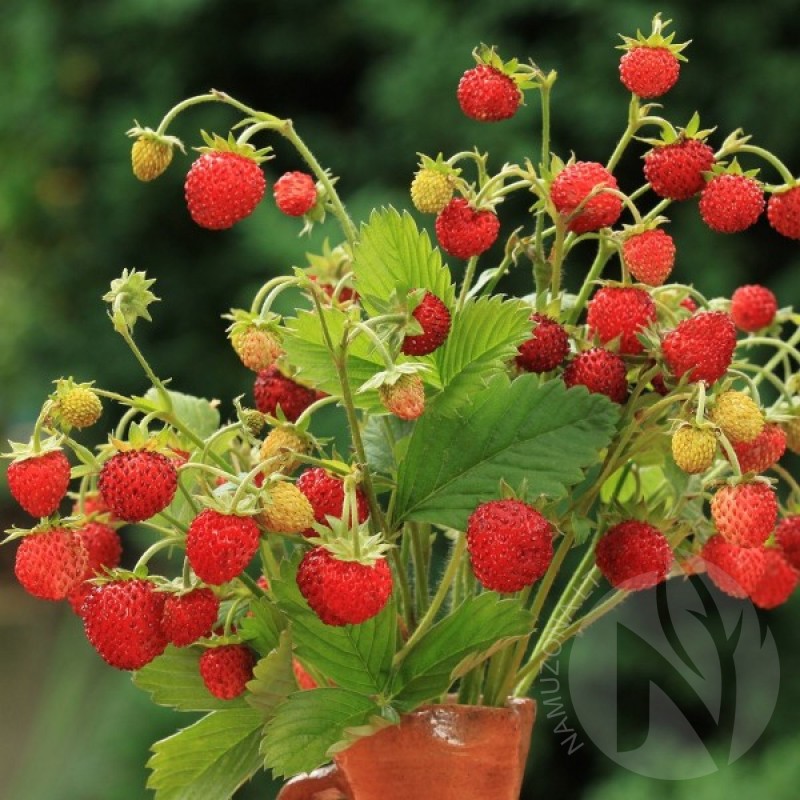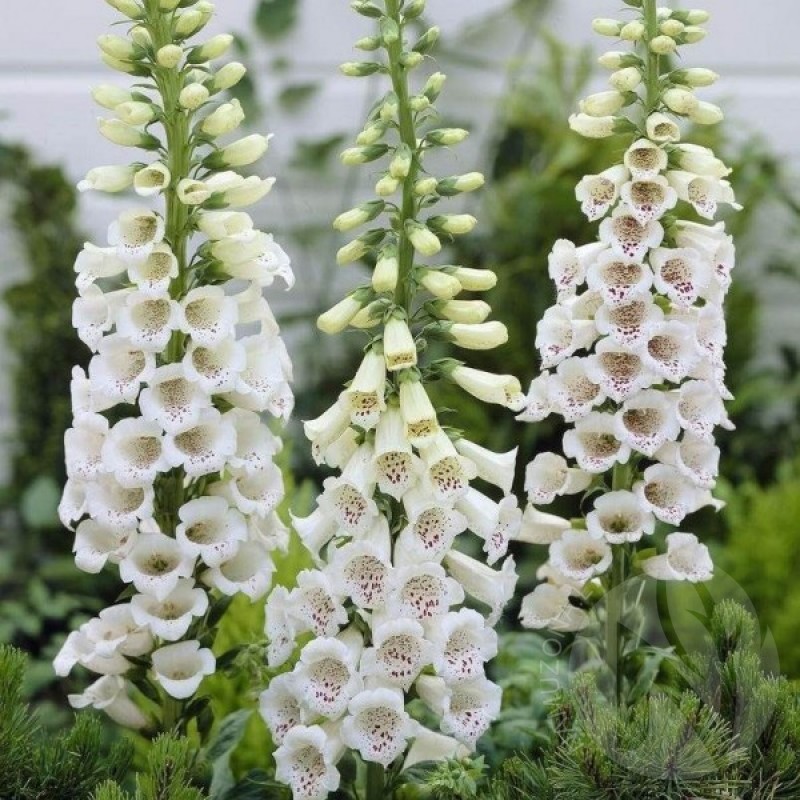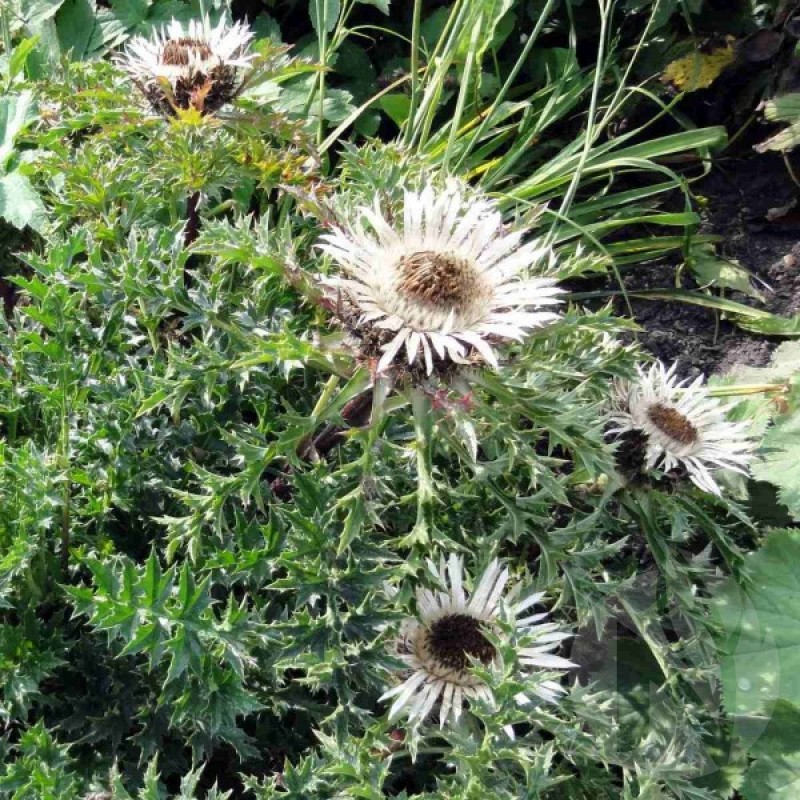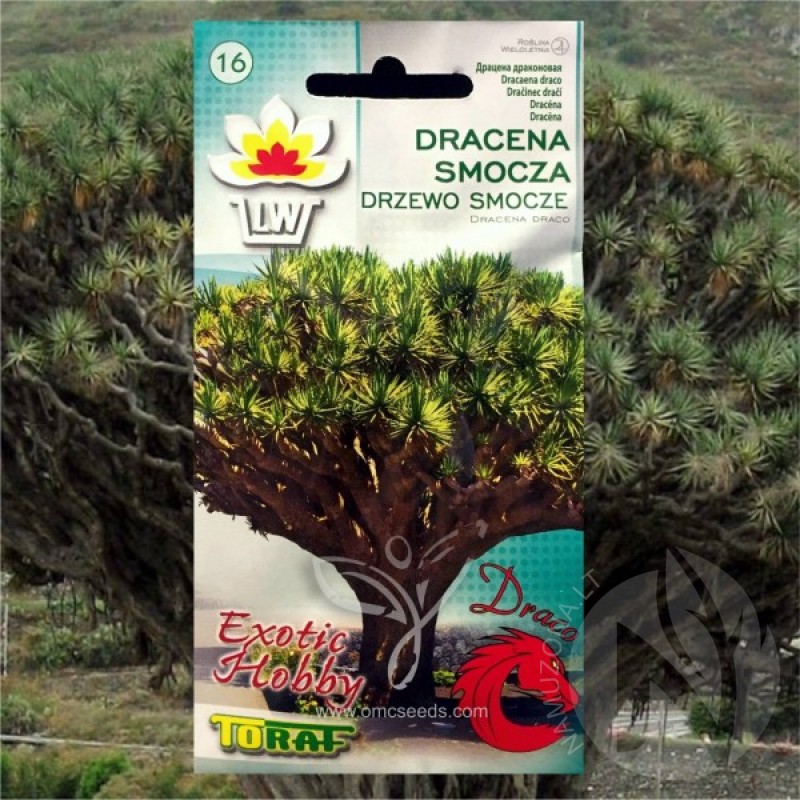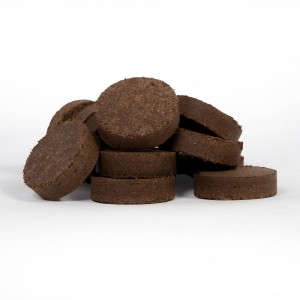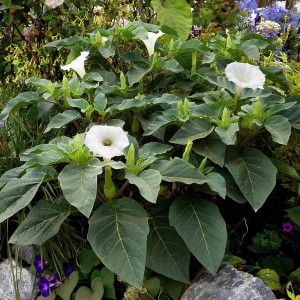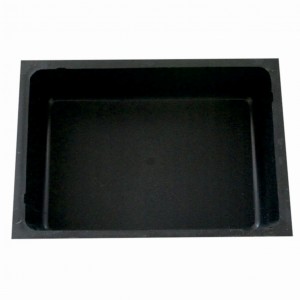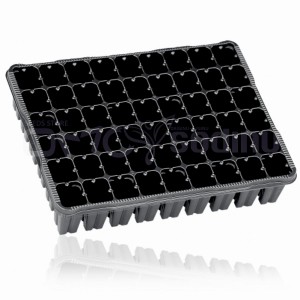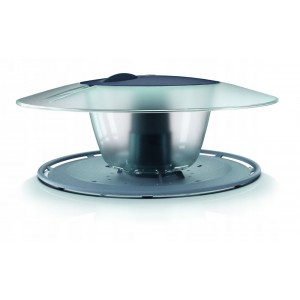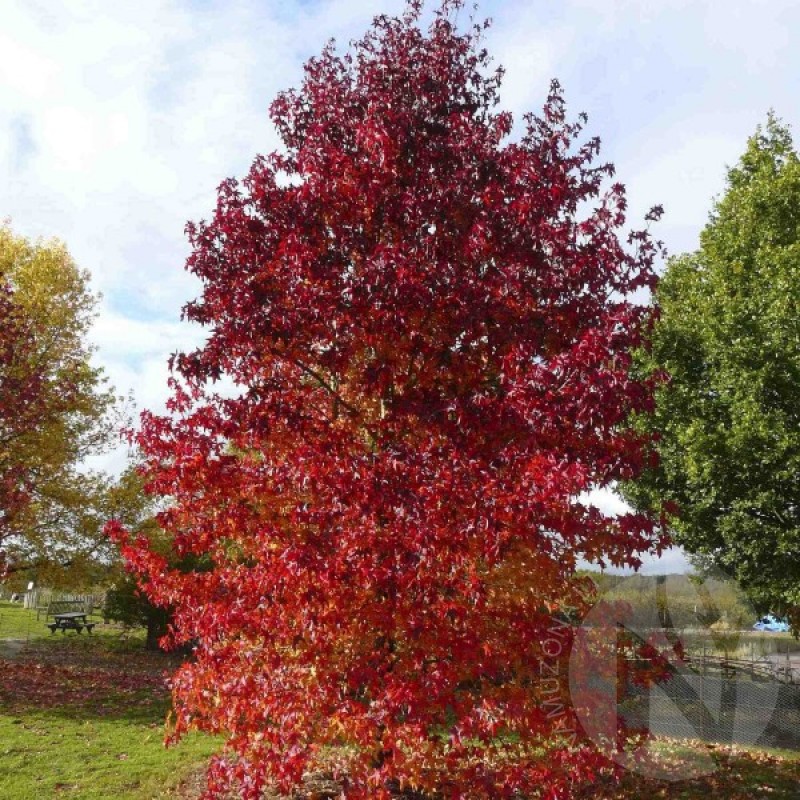
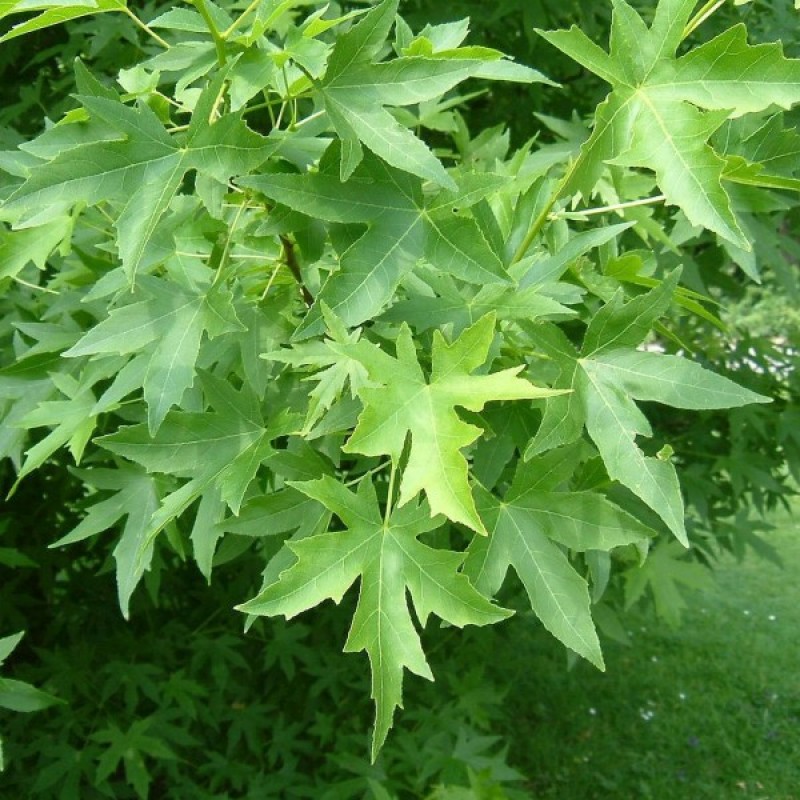
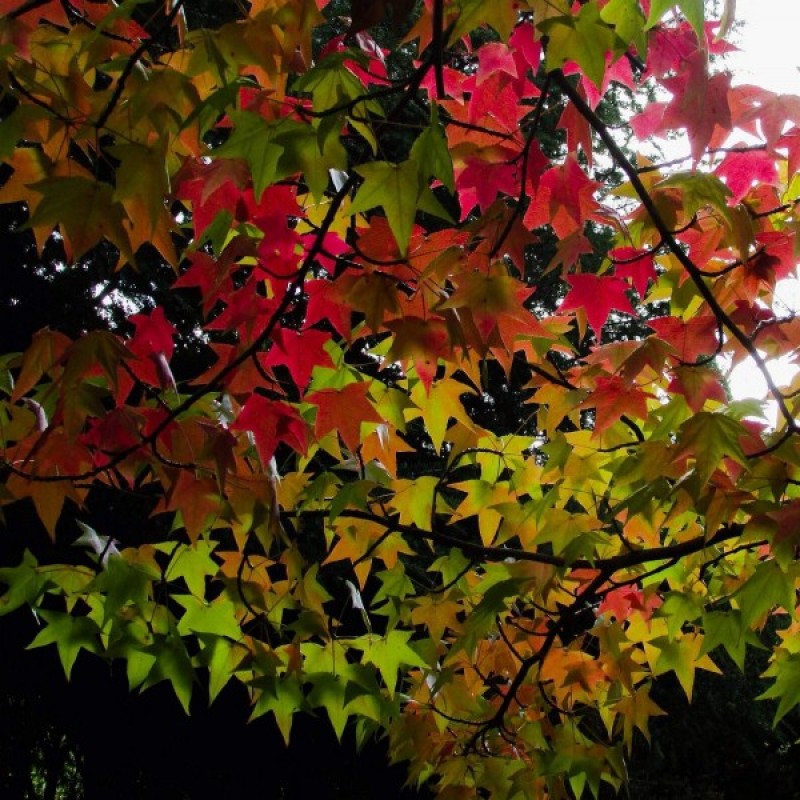
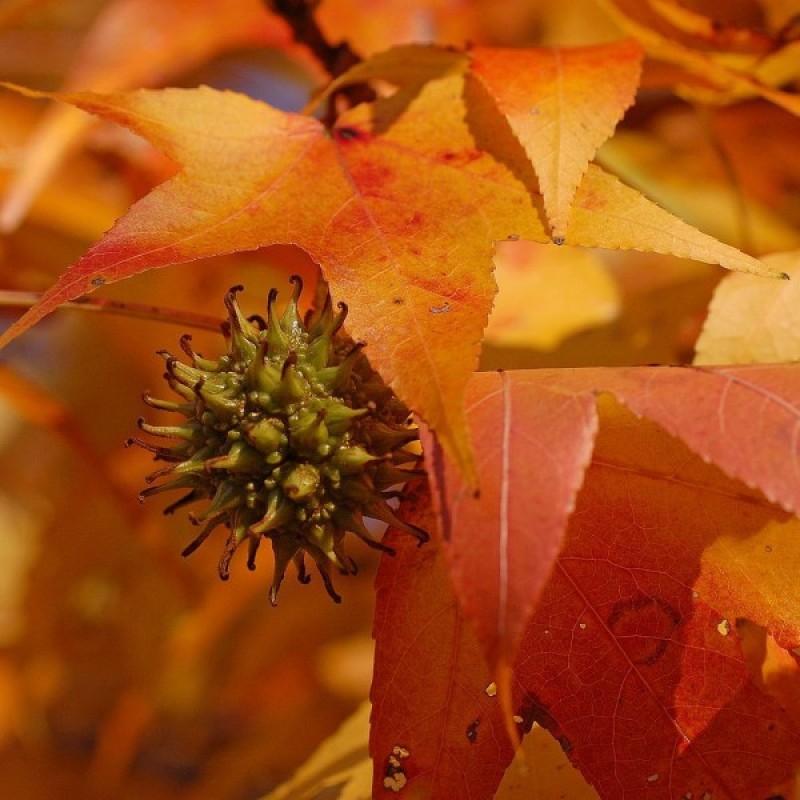
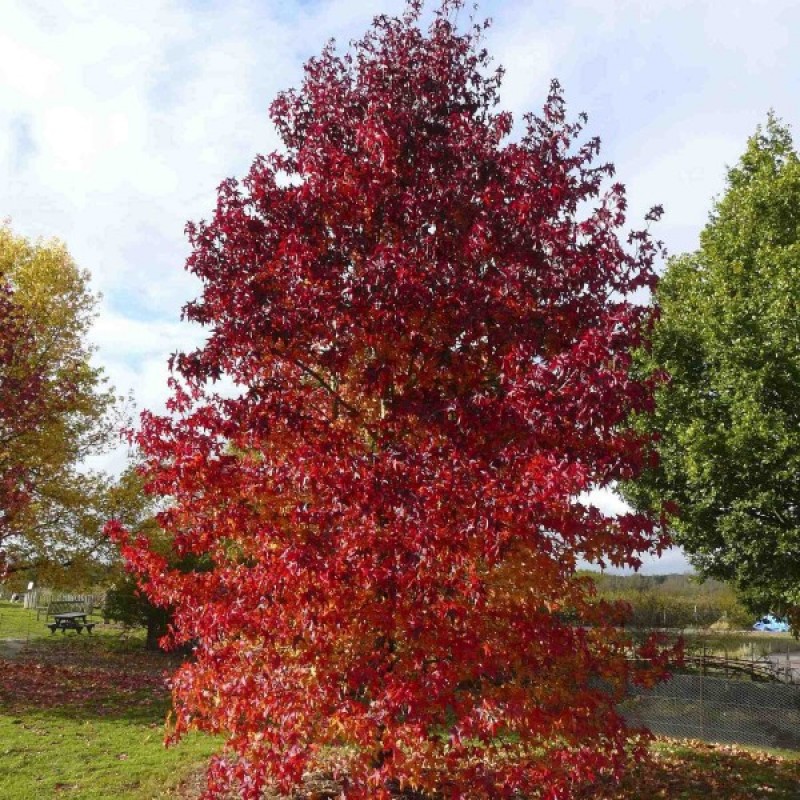
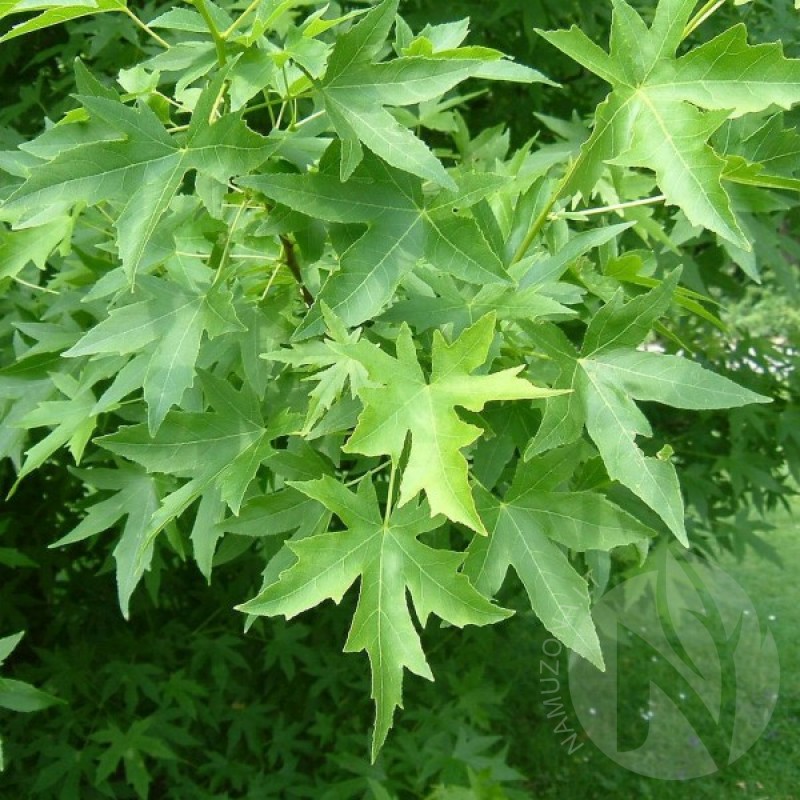
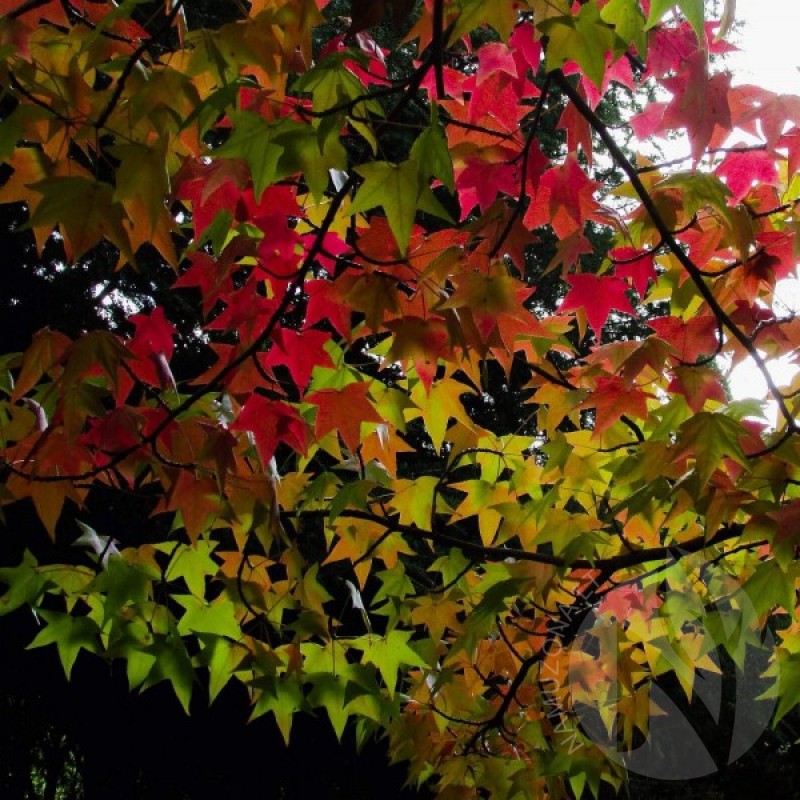
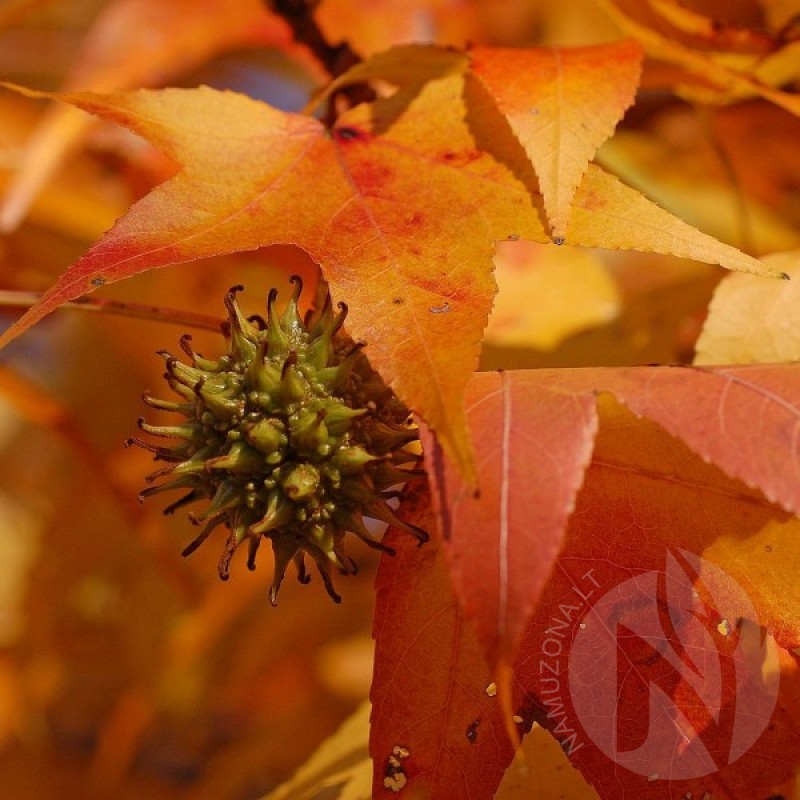
PAY ATTENTION!
All seeds (except SOLD OUT) are available for immediate shipping and will be dispatched within 1-2 business days.
INFORMATION NEEDED? PLEASE CONTACT US NOW!
The spiny fruits, palmate foliage and stark appearance of the American sweetgum are all unmistakable. This impressive tall, deciduous tree is native to the central and southeastern United States from New York to Florida and across to Texas. Specimens are also said to grow into Mexico and Central America. Sweetgum is an incredibly adaptable hardwood that’s able to thrive in both lowland and upland sites. It is both fast growing and strong wooded and develops an oval to rounded canopy when mature, though younger tree have a more erect form.
The distinctive palmate leaves of sweetgum have straight, pointy lobes. These are typically glossy green in summer and turn brilliant shades of yellow, red and purple in autumn. In more southern zones, the fall color is not as brilliant. Inconspicuous greenish yellow flowers appear in spring and are followed by spiny fruits that are commonly called “gumballs.” The spherical capsules turn from green to brown and persist on the branches into winter before they gradually drop. Its furrowed bark adds marginal winter interest.
American sweetgum grows best in full sun exposures. It is highly adaptable to a wide range of soil types and topographies from clay to sand and uplands to swamplands, though it tends to grow best in slightly acid soils with good organic matter and average drainage. It has few pest and disease problems. Its main troubles are due to its prolific messy fruits that are painful to step on barefooted, slow to decompose and release seed that readily germinates.
This is a lovely shade tree for natural areas, large landscapes and parks. (source: learn2grow.com)
Genus - Liquidambar
Species - Styraciflua
Common name - American Sweet Gum
Pre-Treatment - Required
Hardiness zones - 5 - 8
Height - 60'-100' / 18 - 30(70) m
Spread - 20'-25' / 6 - 8(20) m
Plant type - Medium tree
Vegetation type - Deciduous
Exposure - Full Sun, Partial Sun
Growth rate - Medium
Soil PH - Acidic, Neutral
Soil type - Clay, Loam, Sand
Water requirements - Drought tolerant, average water
Bloom season - Late Spring, Early Summer
Leaf / Flower color - Green, autumn - Yellow, Red, Purple, Orange, Dark Red / Yellow green
GERMINATION INSTRUCTIONS
1. Place seeds in moistened peat moss inside a plastic bag. Put the bag in the refrigerator or somewhere that temperatures remain +1-+4C (40F) for 30 to 60 days. This will break the embyro's dormancy so the seed can germinate.
2. Sow the seeds on the surface of the soil in a 10 cm (4") pot filled with potting soil. Press them down with your palm to make good contact with the soil. Water the pot and make certain it does not dry out. Place the pot in a well-lit area that is at least +15C (60F). Faster germination will occur in temperatures above +16C (60F).
3. Fertilize the seedlings with a half dilution of seaweed fertilizer every other time you water. Commence this feeding process as soon as the seedlings have their first pair of true leaves.
4. Prepare a garden bed in spring. Dig in 10-15 cm (3-5") of compost for nutrients, tilth and to help conserve water. Plant the seedling after you have hardened it off for a week. (info source: ehow.com)
Atsiliepimų apie šią prekę kol kas nėra.
No questions about this product.

